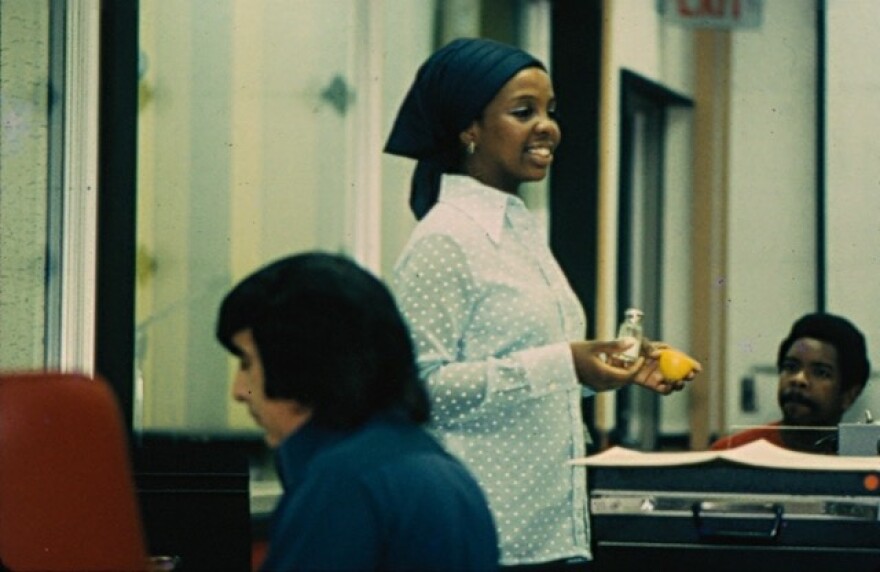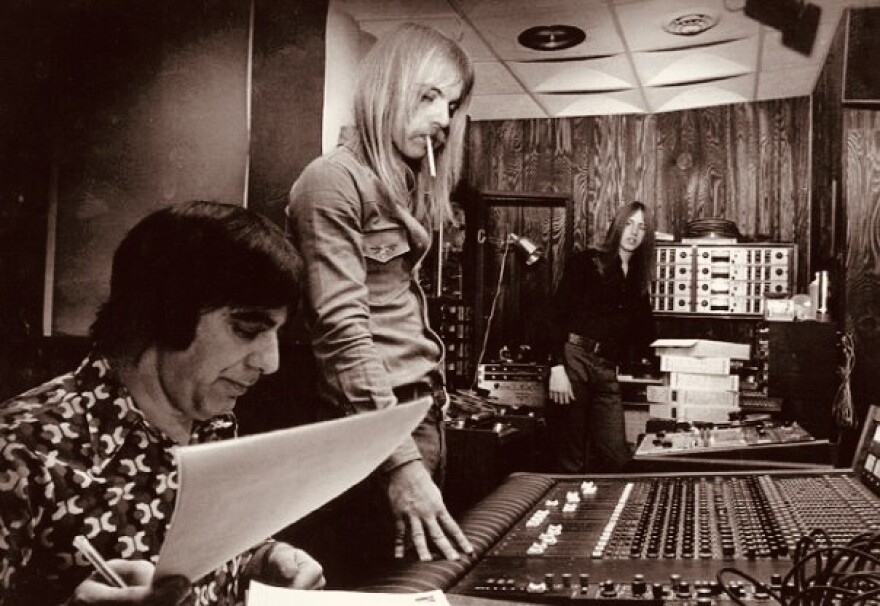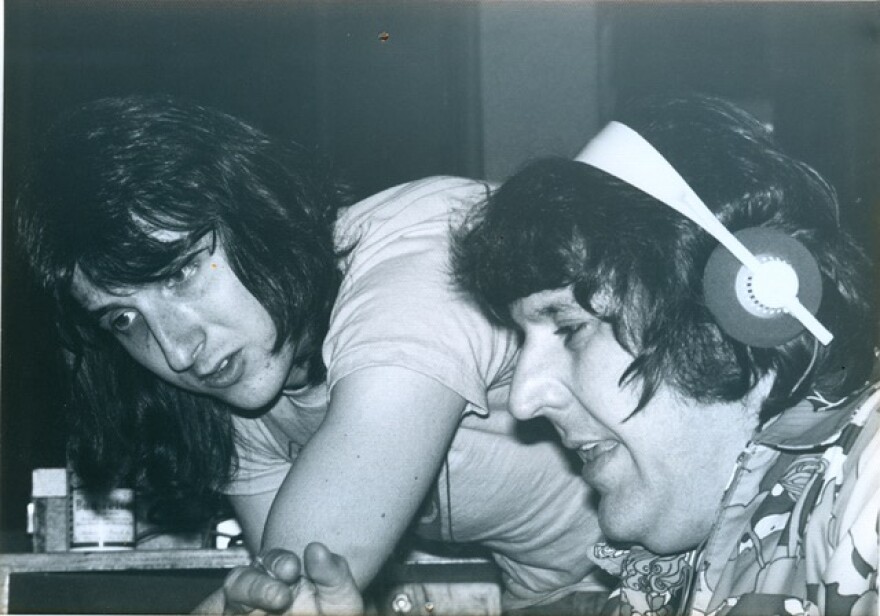A new documentary pays tribute to the late music producer Tony Camillo and the 50th anniversary of "Midnight Train to Georgia," the smash hit from Gladys Knight and the Pips.
Tony Camillo's son-in-law and journalist Ian T. Shearn created, wrote and executive produced "A Song Unto Itself: Midnight Train to Georgia."
Shearn and jazz musician Barry Miles joined WBGO's Doug Doyle to talk about the podcast and the magical collaboration put together by Tony Camillo.

Shearn says he started to think about the project last year with the big anniversary of the famous tune coming up in 2023.
"The motivation was to pay tribute to Tony Camillo, but along the way I came to admire all the players who were involved in this collaboration."
Tony Camillo recorded, mixed, and produced "Midnight Train to Georgia" at his Venture Sound Studios in Hillsborough, New Jersey. Shearn says his father-in-law had many opportunities to work for bigger enterprises but wanted to have his own say in the music he produced.
"This was a time of great change in the music and record industry. Tony was offered with Motown and the legendary song-writing production team of Holland-Dozier-Holland but he turned them down. At that time Motown was the epicenter of popular music in America. Tony wanted to build a studio in his basement and produce his own records. He stayed to his cause and you saw what happened."
Shearn adds “Midnight Train to Georgia” was not always called that. It was initially created as “Midnight Plane to Houston.” And it did not always sound the way it ended up sounding when it was a recorded 50 years ago.
"The writer of the song Jim Weatherly was a former All-American football quarterback from Ole Miss. After that he tried to make it as a song writer and (country) singer. He moved to LA. He was good friends with an actor named Lee Majors. They played flag football together. He called up Lee one day to check and Lee's new girlfriend Farrah Fawcett answered the phone and they chatted a little bit. Lee wasn't home and Farrah said was getting ready to take a midnight plane to Houston. Jim hung up the phone and said 'wow' there's something for a song. He sat down and in 20-30 minutes after that phone call he banged out those really potent lyrics. That's the genesis of the song."

The documentary podcast take you behind the scenes where the music makers themselves tell you the remarkable back story of this iconic pop record -- including the struggles and setbacks that derailed the recording sessions, as well as the long, challenging journey Gladys and the Pips endured before they finally arrived at their defining moment.
Barry Miles, known for his jazz fusion projects, worked many times with Tony Camillo and got the call to play keyboards on "Midnight Train to Georgia." Miles says, at first, he didn't necessarily know the song was going to be a Grammy Award-winning tune.
"When I played on it what I was hearing was the rhythm section. I think I heard of the melody that Gladys had put on a previous version of it. So I knew about the song. I thought it was a great song and obviously Tony's arrangement was beautiful. I was just hearing Tony's electric guitar, bass and drums. I knew it was really good but who knew at that particular time where that was going to go. There's so many elements and things that would determine where a song goes and how it's promoted. Once I finally heard the final version I said that's a hit."

The Newark-born Miles who had performed with the likes of John Coltrane and Miles Davis and eventually became Roberta Flack's musical director, describes the vibe he initially felt when playing the song.
"Midnight Train to Georgia had an R&B-pop element to it, but Tony wanted, at least at that particular time, to get a little bit of the country thing or something different in it. In the documentary it mentions how Gladys really wanted to go in that direction, so in the very beginning of the song, there's a little piano line and Tony wanted me to play something there. I fiddled around with a bit and finally came up with a line and he said that's perfect. It was something like a Fred Cramer piano style and that's the first thing he had in the song. His arrangements had a lot of elements that weren't your typical Motown and typical R&B sound, and that's why it was so unique."

The collaboration of musicians included longtime Motown bassist Bob Babbitt, drummer Andrew Smith and guitarist Jeff Mironov. The vocals, strings, horns (by players including trumpeter Randy Brecker and baritone saxophonist Michael Brecker), percussion and keyboards by Barry Miles were added later.

Camillo, who also played keyboards and percussion on the track, died in 2018 at the age of 90.

Ian Shearn says this 36-minute documentary will give his father-in-law the credit he deserves for a wonderful career in music.
"Tony Camillo was a very talented trumpet player and arranger and finally a producer. I think Tony had an affinity for music that was instinctive. He had a calling for music from an early age. He followed that calling. Yes, he wrote arrangements, but he would take those arrangements into the studio, pass out his lead sheets to his musicians and say 'this is what I'm thinking but you guys are great so I want you to bring your own thing to this.' This is how songs like "Midnight Train to Georgia" captured the magic because he encouraged and allowed these collaborations to happen during live sessions. It's pretty amazing."
Shearn is a Pulitzer Prize-winning journalist and a regular contributor to NJ Spotlight News.

Credits for A Song Unto Itself: Midnight Train to Georgia:
- Ian T. Shearn: creator, writer, executive producer.
- Robin Garb: narrator, music supervisor editor.
- Vince DiCola & Kenny Meriedeth: underscore composers.
- Jordan Gass-Poore: audio engineer
You can SEE the entire conversation with Ian T. Shearn and Barry Miles here.




